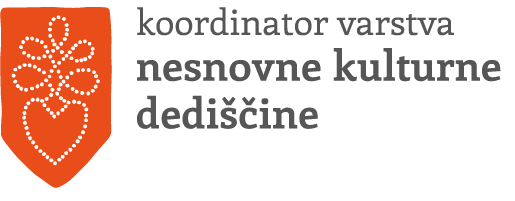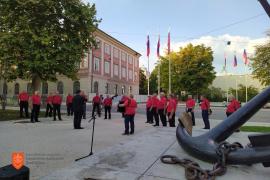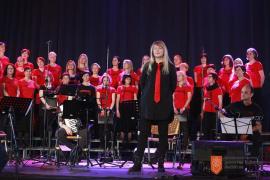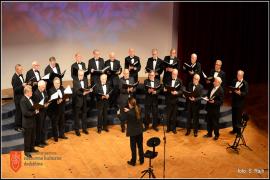
On May 22, 2024, the Ministry of Culture, at the proposal of the Coordinator for the Safeguarding of the Intangible Cultural Heritage inscribed the 118th element of the intangible cultural heritage in the Register of the Intangible Cultural Heritage – Singing partisan Songs.
Slovenian partisan songs and other songs of rebellion are performed by choirs and groups of different genders and ages, mostly at concerts, memorial ceremonies and gatherings.
Three bearers were identified as the bearers of this element of the intangible cultural heritage.
1. Kulturno društvo Partizanski pevski zbor
Kulturno društvo Partizanski pevski zbor nurtures the cultural association and transmits partisan songs and songs of rebellion to the public. The choir, which has approximately 30 singers, presents itself at independent concerts, performs at regular annual events (Pot ob žici, Festival of Partisan Songs) and various events, and responds to invitations from the interested public. The choir is occasionally accompanied by musicians, most often an accordionist, but occasionally also various orchestral ensembles. New singers are recruited through invitations and auditions. The Choir is the successor of the Choir of disabled persons, which was founded in 1944 in the village of Planina below Mirna Gora above Semič. The first choir leader was Karol Pahor, who formed the first choir from 17 recovering wounded men, which grew and started performing in the valley in the liberated territories in May. Until the end of the war, he performed at many rallies and was a regular guest of Radio Osvobodilna fronta. The program of songs at that time was composed in thirds: one third partisan, one third folk and one third original songs. After the end of the war, the choir demobilized and was renamed the Partisan Disabled Choir and performed as a civilian choir. In 1972, the choir was renamed the Partisan Choir. With a short formal break after the end of World War II, the choir has been working continuously since its inception until today.
2. Zavod Novi kombinat
Zavod Novi kombinat women's choir was founded in 2008 and consists of 40 female singers. The choir preserves and transmits to the public partisan songs and songs of rebellion from around the world and from different eras, which are at least partially performed in their original languages. There are also some original songs contributed by members of the choir. The choir presents itself at independent concerts, performs at various events in memory of the NOB, and responds to invitations from the interested public. The choir's repertoire is very wide, comprising around 40 songs, and they learn it at regular rehearsals once a week under the direction of conductor Mateja Mauri. The choir is accompanied by musicians: guitarist, bassist and accordion player. New singers are recruited through auditions.
3. Kulturno društvo Moški pevski zbor “Slava Klavora” Maribor
Kulturno društvo Partizanski pevski zbor Maribor has been operating since June 1945, when its singers merged with the singers of the pre-war choir Jadran. Two years later, it was named after the national heroine Slava Klavora. Choir directors Rajko Sikošek, Jože Gregorc, Branko Rajšter and Stane Jurgec are particularly responsible for the choir's high-quality growth and international recognition. Today, the choir has 22 singers, and their repertoire of performed songs is extremely extensive and versatile, and always includes the singing of partisan songs, which the choir began to sing when the Maribor Partisan Choir ceased to exist.
The Register of the Intangible Cultural Heritage currently consists of 118 elements and 362 registered bearers of the intangible cultural heritage.



